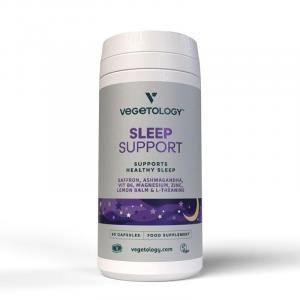
Why an Anti-Snoring Pillow is the Ideal Solution for Better Sleep

How the Right Pillow Can Change Sleep Quality
Snoring is a phenomenon that can disturb the nights not only of those who suffer from it but often also their partners. Although it may seem trivial, it is actually an inconvenience often linked to overall sleep quality, respiratory health, and even the potential risk of sleep apnea. Fortunately, there are ways to alleviate this problem – one of them is choosing the right anti-snoring pillow.
Why Do We Snore?
Snoring occurs when airflow during sleep encounters difficulties passing freely through the airways. As a result, the soft tissues in the throat vibrate, producing the well-known, often disruptive sound. The main causes include being overweight, sleeping on your back, a blocked nose, and anatomical deviations like enlarged tonsils or a deviated nasal septum.
While some causes can be addressed through lifestyle changes, others can be tackled by smartly setting up the sleep environment. This is where the ergonomic anti-snoring pillow comes into play, helping to keep the head and neck in an optimal position.
What Makes an Anti-Snoring Pillow Different from a Regular One?
It's not just about comfort – a pillow designed against snoring has a specific shape or filling that supports the correct position of the head and cervical spine. This contributes to easier breathing and minimizes the risk of airway narrowing. Some models are designed to gently encourage side sleeping, as the back position is often the biggest trigger for snoring.
The best anti-snoring pillows often combine several features: ergonomic design, memory foam, and hypoallergenic materials. An advanced option includes smart pillows that can actively detect and respond to snoring.
How Does a Smart Anti-Snoring Pillow Work?
It sounds like sci-fi technology, but with a bit of invention, the result is a pillow that monitors sound manifestations of sleep at night. If it detects snoring, it activates gentle vibrations or changes shape using air chambers. The aim is to gently prompt the sleeper to change the position of their head or body – without fully waking up. An example is the Motion Pillow model, which uses a sensor module placed next to the bed and connects to the pillow via a smart algorithm.
And what is the review of smart anti-snoring pillows in practice? Users often report relief not only in the form of less partner disturbance but also a stronger sense of restfulness in the morning. Interestingly, some began to notice longer phases of deep sleep, which are crucial for the body's regeneration.
Everyday Life Experience
Let's imagine Peter and his wife Jane. He – a typical snorer, she – chronically sleep-deprived. After years of desperation, earplugs, and separate bedrooms, they found a solution in the form of a memory foam pillow, shaped to gently support the neck and keep the head at a slight incline. The result? Peter is no longer woken up at night, and Jane finally looks forward to every morning. It's not a miracle – it's physics and ergonomics in the service of good sleep.
What to Consider When Choosing?
There is a wide range of options on the market today, so navigating them isn't easy. However, there are several basic points to consider when choosing a quality anti-snoring pillow:
- Shape and support – ideally anatomically shaped, with an emphasis on the neck area.
- Material – memory foam is proven for its adaptation to body contours, but breathability is also important.
- Sleeping position – a different pillow is chosen by someone who predominantly sleeps on their side versus someone who rolls onto their back.
- Washability or replaceable cover – hygiene is key, especially for products that come into daily contact with the skin.
If you opt for a smart anti-snoring pillow, it's worth monitoring the quality of the mobile app that often accompanies it. Some apps can display a graph of sleep cycles or record the frequency of snoring throughout the night.
Try our natural products
Do Anti-Snoring Pillows Really Work?
Scientific studies have varied opinions, but the overall trend shows that the correct head position can have a positive effect – especially for people who do not suffer from severe sleep apnea. The American Sleep Foundation, for instance, states that "adjusting sleep position is one of the easiest ways to reduce the risk of snoring."
Unlike invasive methods or medications, specialized anti-snoring pillows offer a non-invasive and comfortable solution – and they are often an investment that lasts for years. It's no wonder that in reviews, people often mention pillows as the first step to better sleep.
What If the Pillow Isn't Enough?
It's important to realize that even the best anti-snoring pillow might not be a cure-all. If snoring is accompanied by breathing pauses, excessive daytime fatigue, or frequent waking, consulting a doctor is advisable. In some cases, it might be sleep apnea that requires professional diagnosis and specific treatment.
For common cases, however, the combination of a suitable pillow, a healthy lifestyle, and a quality sleep routine can work wonders. As American writer Thomas Dekker once said: "Sleep is the golden chain that ties health and our bodies together." And quiet, undisturbed nights are the best confirmation of this.
In a world where sleep is increasingly valued, it is worth viewing your nighttime habits as an important aspect of health. And if everything starts with a pillow, then maybe it's the right time to replace the old one with something that does more than just support your head – it might save your relationship.



